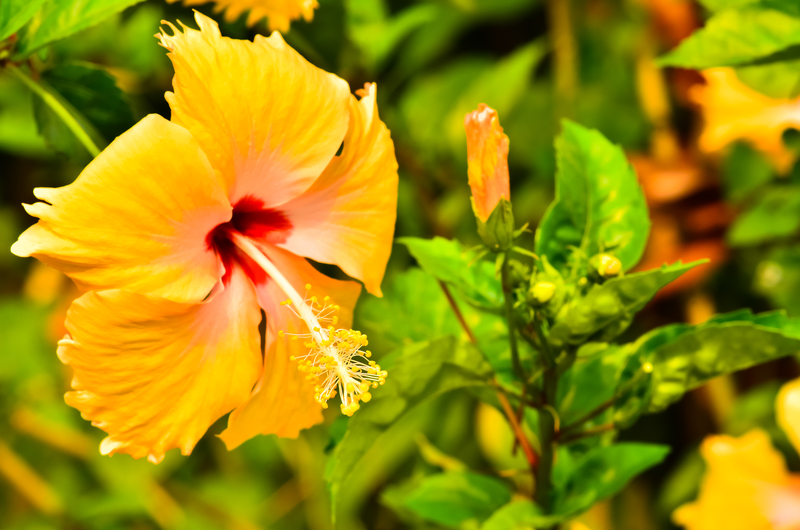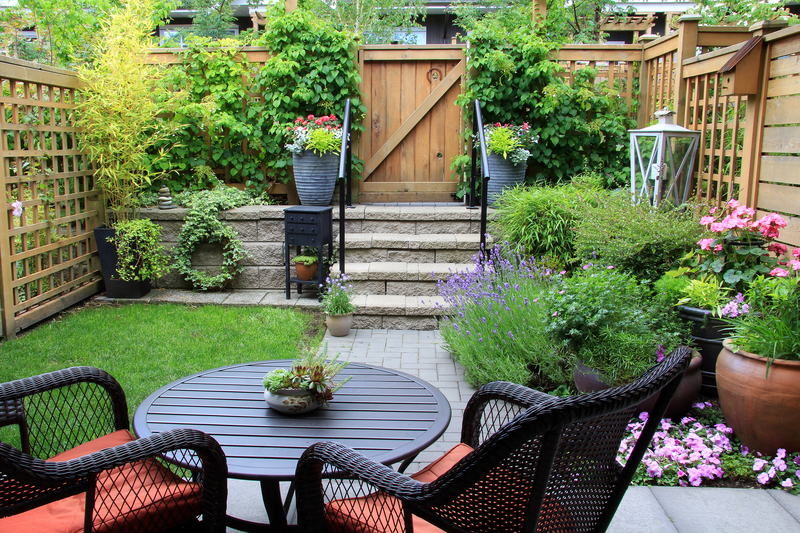Recycling Organics into Lush, Growing Soil
Posted on 21/09/2025
Recycling Organics into Lush, Growing Soil: A Comprehensive Guide
Recycling organic materials has become one of the most vital aspects of sustainable living and eco-friendly gardening. By turning kitchen scraps, yard waste, and other organic matter into nutrient-rich, growing soil, we can transform waste into one of nature's greatest resources: healthy, productive soil. This article will thoroughly explore the science, methods, and practical tips for converting organics into lush, fertile soil, ensuring your garden or landscape flourishes while reducing your environmental footprint.
Understanding the Importance of Organic Recycling
Why recycle organic materials? The answers are many and compelling:
- Reduces landfill waste: Organic matter makes up about 30% of household waste. If sent to the landfill, it breaks down anaerobically, producing methane--a powerful greenhouse gas.
- Enriches soil fertility: Repurposing organics into soil helps improve soil structure, moisture retention, and vital nutrient content.
- Supports plant health: Soils rich in organic matter foster healthy microbial activity, which translates to vibrant, robust plants.
- Promotes biodiversity: Recycling organics encourages populations of earthworms, beneficial insects, and microbes, strengthening the entire ecosystem.
- Saves money: Homeowners and gardeners reduce the need for pricey chemical fertilizers and soil amendments by producing their own high-quality compost.
Organic Waste Types Ideal for Composting
Many forms of organic material can be recycled into growing soil. These include:
- Fruit and vegetable peels
- Coffee grounds and tea bags
- Eggshells
- Grass clippings
- Leaves and small branches
- Wood chips and sawdust (from untreated wood)
- Shredded newspaper and cardboard
- Manure from herbivorous animals
Note: Avoid adding meat, dairy, oils, diseased plants, or pet waste, as these can create odors, attract pests, or contaminate your compost.

Composting: The Gold Standard for Organic Recycling
At the heart of turning organics into growing, lush soil lies composting. Composting harnesses natural decomposition to convert organic waste into a dark, crumbly, earthy-smelling amendment that supercharges soil health.
Essential Steps for Successful Composting
-
Choose Your Composting Method
- Backyard compost piles or bins: Ideal for households with outdoor space.
- Tumbler composters: Great for quick, efficient composting and odor control.
- Vermicomposting (worm bins): Perfect for small spaces and indoor use.
-
Balance Green and Brown Materials
- Greens: Nitrogen-rich (kitchen scraps, coffee grounds, grass).
- Browns: Carbon-rich (leaves, cardboard, wood chips).
Aim for a ratio of roughly 2 parts browns to 1 part greens for optimal decomposition.
-
Maintain Moisture and Aeration
Compost should feel like a wrung-out sponge--not too dry, not soggy. Turn or mix your pile regularly to add oxygen and speed up the breakdown process.
-
Monitor and Wait
Active composting takes a few months. Finished compost is dark and crumbly, with no distinct chunks or offensive smell.
Beyond Compost: Other Forms of Organic Soil Enrichment
Vermicomposting: Harnessing the Power of Worms
Vermicomposting uses red wiggler worms to devour food scraps and excrete nutrient-dense castings--one of the best soil enhancers. Worm castings enhance soil structure, water retention, and plant nutrient uptake.
- Set up a worm bin with bedding (shredded paper, coconut coir).
- Feed small amounts of fruit and veggie scraps.
- Harvest castings every few months for use in potting mixes or top-dressing plants.
Bokashi: Fermentation for Organic Recycling
Bokashi composting is a fermentation process that uses special additives (bran inoculated with beneficial microbes) to break down virtually all types of kitchen waste--including meat and dairy--into a pre-compost that can be buried in the garden to finish decomposing rapidly.
- Collect food waste in a sealed Bokashi bucket.
- Sprinkle Bokashi bran after each addition.
- After 2-3 weeks, transfer the pre-compost to soil to complete the composting cycle.
Mulching: Recycling Organics Directly to the Soil Surface
Mulching is another direct form of recycling organic matter. Spread grass clippings, shredded leaves, or straw as mulch to:
- Suppress weeds
- Retain soil moisture
- Gradually feed soil as mulch breaks down
This natural recycling process fosters a healthy, living soil with minimal effort.
The Science Behind Healthy, Lush Soil
Turning organic waste into fertile soil is more than just a way to dispose of scraps--it's a means of building a living, thriving ecosystem underground. Healthy soil depends on a rich mix of organic matter, minerals, air, water, and countless microorganisms working in harmony.
Benefits of Organic Matter in the Soil
- Feeds soil microbes: Compost and organic amendments are the primary fuel for beneficial bacteria, fungi, and other soil dwellers.
- Improves soil structure: Humus (stable organic material) binds soil particles, enhancing aeration and water infiltration.
- Boosts nutrient availability: Organic matter stores and releases essential nutrients as plants need them.
- Increases water retention: Soils rich in compost retain more moisture, reducing the frequency and amount of irrigation required.
- Builds disease resistance: Robust soil life can suppress plant pathogens and support healthy root systems.
How to Use Your Recycled Organic Soil
Applications of Homemade Compost and Organic Amendments
- Garden beds: Mix 2-3 inches of finished compost into vegetable beds or flower gardens each season for thriving plants.
- Lawn care: Top-dress lawns to improve grass growth and disease resistance.
- Trees and shrubs: Apply compost around the drip line (not directly against the trunk) to nourish woody plants.
- Potting mixes: Blend compost (up to 25%) with soil when potting houseplants or seedlings.
- Mulching: Spread coarse compost as a mulch to protect soil and gradually boost fertility.
Each application not only feeds your plants; it continuously recycles nutrients, fosters deeper roots, and creates the conditions for a lush, resilient landscape.
Overcoming Challenges in Recycling Organics
Common Composting Problems and Solutions
- Bad smells: Usually indicates too many greens or excess moisture. Add dry browns and aerate to correct.
- Pests or rodents: Avoid meat, dairy, and oily foods; use a sealed tumbler or rodent-proof bin.
- Slow decomposition: Chop or shred materials, maintain moisture, and turn more frequently.
- Compost too wet/dry: Add brown material if wet, or sprinkle water if dry.
Tips for Urban and Small-Space Composting
Even if you lack a backyard, you can still recycle organics and create excellent soil:
- Use a worm bin under your kitchen sink or balcony.
- Try Bokashi composting indoors with minimal space and no odors.
- Look for community compost programs or curbside organics collection if personal composting isn't practical.

Environmental Impact and the Future of Organic Soil Recycling
Recycling kitchen and yard waste into lush, growing soil not only improves your garden and lowers household waste--it also helps fight climate change and fosters more sustainable communities.
- Reduces landfill emissions: Cutting organic waste in landfills lowers methane, a greenhouse gas 25 times more potent than carbon dioxide.
- Regenerates degraded soils: Compost use rebuilds poor or eroded soils, supporting food production and ecosystem recovery.
- Inspires eco-conscious habits: Families and schools that compost learn to value nature's cycles and the importance of stewardship.
Government and Community Initiatives
- Green bin programs in many cities collect food and yard waste for large-scale composting.
- Educational workshops teach composting skills and soil ecology, spreading the benefits wider.
- Urban agriculture projects often rely on local compost to create high-yield food gardens in city spaces.
Conclusion: The Cycle of Abundance Through Organic Recycling
Recycling organics into lush, growing soil is a simple yet powerful action, closing the loop between our kitchens, gardens, and the earth. Whether you use a humble backyard bin, cultivate worms in your apartment, or participate in a community initiative, every act of organic recycling builds a foundation for healthy, resilient food systems and thriving landscapes.
Start with small steps--collect your food scraps, learn the basics of composting, and watch as your waste turns into black gold for your garden. With each banana peel and autumn leaf, you are not just feeding plants, but nurturing the planet for generations to come.
Key Takeaways on Recycling Organics into Fertile Soil
- Composting and organic recycling are essential for sustainable waste management and soil health.
- Many methods exist, from traditional compost piles to vermicomposting and Bokashi.
- Healthy, organic-rich soil grows stronger plants, conserves resources, and fights climate change.
- Anyone can participate--whether at home, in community gardens, or through municipal programs.
Transform your organic waste into abundance--start recycling into lush, growing soil today!
Latest Posts
Green Walls and Vertical Gardens: Beauty Reimagined
Recycling Organics into Lush, Growing Soil
The Magical World of Herb Gardening

